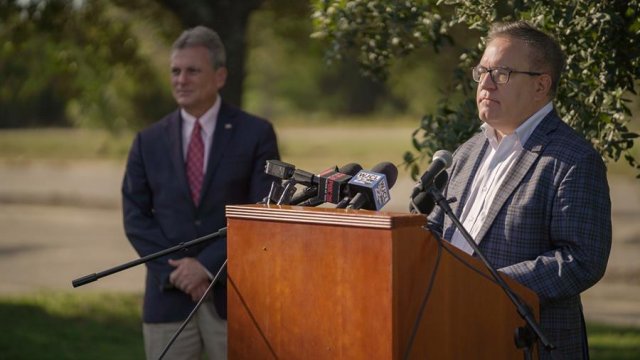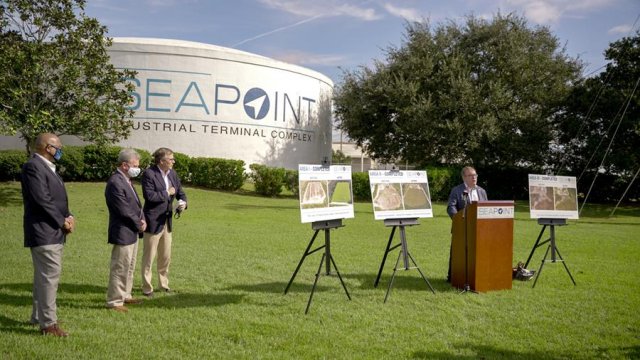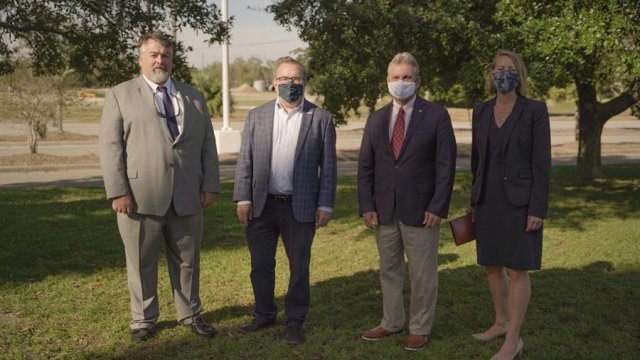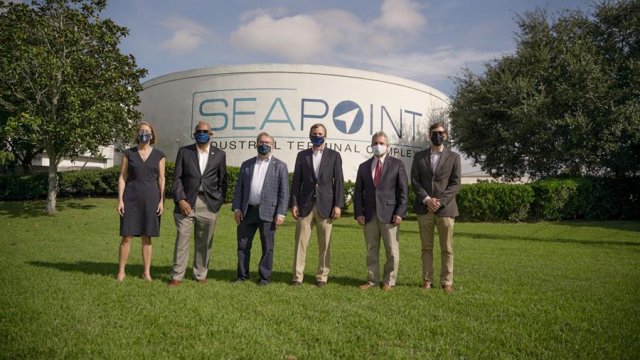Administrator Wheeler, Rep. Carter Highlight Marine Engine Regulatory Relief for Pilot Boats, Tour Redevelopment in Savannah
Savannah, Ga. (October 28, 2020) — Today, U.S. Environmental Protection Agency (EPA) Administrator Andrew Wheeler, U.S. Congressman Early “Buddy” Carter (GA-01), and EPA Region 4 Administrator Mary Walker toured redevelopment at the the SeaPoint Complex and held a press conference highlighting recent EPA action providing regulatory relief for pilot boat captains and American lobsterman, and Diesel Emission Reduction Act (DERA) grants.
“This action will ease the regulatory burden for marine pilots and boat builders who use high-power marine engines,” said EPA Administrator Andrew Wheeler. “The market for the newest Tier 4 diesel engines is still immature, which means boat builders can’t yet offer the newest models to pilot boat operators. This action will keep marine pilots from being forced to scale back their work until boat-builders can obtain the certified engines they need.”
“I thank the EPA Administrator for coming to Savannah to see how important this regulatory relief is for our ports and bar pilots,” said U.S. Congressman Earl “Buddy” Carter (GA-01). “Without this action, the pilots could have been forced to scale back their critical work that is required for every ship to enter and exit both the Ports of Savannah and Brunswick. This would have been devastating for our ports. Now, the pilots will be able to keep traffic moving until boat-builders are able to meet the standards.”
“This rule provides bar pilots and boat builders the flexibility they need to meet EPA standards, said EPA Region 4 Administrator Mary S. Walker. “By working together with states and the marine industry, EPA’s rule will ensure bar pilots are able to continue to provide critical support and services to the Port of Savannah.”
Administrator Wheeler and Rep. Carter held a press conference with pilot boat captains to highlight the recently finalized amendments to the marine diesel engine program. Finalized in August, the amendments addressed the lack of available certified Tier 4 marine diesel engines for use in certain high-speed commercial vessels. This final rule provides much needed regulatory relief to boat builders and manufacturers of lightweight and high-power marine diesel engines. Specifically, this action will benefit America’s hardworking lobster fishermen and pilot boat captains, who rely on these engines for safe and productive operations in their high-speed commercial vessels.
The final action amends EPA’s existing rules to allow for the continued installation of Tier 3 engines in new vessels for a limited time – until 2022 or 2024, depending upon the size and type of vessel. This in turn will help those boat builders who have found themselves unable to obtain the certified engines they need to construct the specialized vessels with the size and power characteristics required by their customers, such as lobster fisherman and pilot boat operators. In addition, the final amendments provide for a waiver process to accommodate the situation should suitable Tier 4 engines continue to be unavailable in the future.
Administrator Wheeler also highlighted DERA grants and rebates advancing the agency’s mission of protecting human health and the environment by improving air quality through funding projects which reduce harmful emissions from diesel engines.
In Fiscal Year 2020, Georgia Port Authority (GPA) received a $1.1 million DERA grant to replace 37 drayage trucks that service the port of Savannah GPA Garden City Terminal Container Port Terminal. In total, Georgia Ports Authority has received eight DERA national grants for more than $8 million. This funding has been used to replace drayage trucks, replace diesel rubber-tired gantry cranes with electric cranes, and install retrofit technologies on older diesel engines. EPA estimates these projects have prevented over 95 tons of particulate matter and 2,350 tons of nitrogen oxides emissions.
In addition to supporting on-the-ground clean air projects, EPA has also been partnering with Georgia Port Authority and port stakeholders on clean air planning and community engagement efforts as part of EPA's Ports Initiative. EPA is proud to partner with GPA on clean air projects like these, which are a great example of environmental protection in tandem with helping local economies.
Following the press conference, Administrator Wheeler, Rep. Carter, and Region 4 Administrator Walker toured the SeaPoint Complex where they observed economic redevelopment efforts taking place as a result of Opportunity Zone investments resulting from President Trump’s Tax Cuts and Jobs Act.




